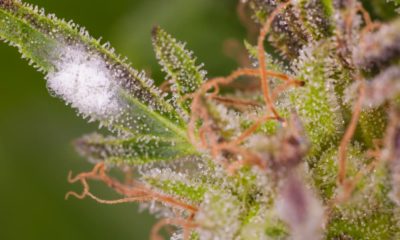As more states and countries move toward legalization, everyone is looking to Colorado for guidance. This means that not only is Denver’s cannabis industry’s success significant for the city as a whole, but it impacts the public’s opinion on cannabis. And this year’s report on Denver’s cannabis industry shows that legalization has lowered crime and raised revenue for the city. Here’s what the latest news on Denver’s cannabis industry foreshadows nationwide.
Legalizing Cannabis Lowers Crime
It makes sense that legalizing weed would lower crime. Weed prohibition continues to play an important role in the War on Drugs. Back in the ’80s and ’90s, incarceration rates bloomed, especially for people of color. Politifact charted a 500 percent increase in the rate of incarceration over the past 40 years. Since the population of the United States only grew 51 percent during that time, we can attribute most of the prison population’s growth to a crackdown on drug use.
Most importantly, legalizing weed means decriminalizing weed. Though selling weed illegally, smoking it in public places and other offenses can still get you into trouble, the number of people arrested for weed has plummeted. According to Drug Policy, 9,864 weed-related cases went to court in Denver in 2012. By comparison, there were only 1,537 court cases in 2014. By redefining what a what a crime is, Colorado, and its largest city, Denver, has lowered crime rates.
Furthermore, Denver’s annual report shows that marijuana-related crime has decreased post-legalization. Between 2012 and 2017, the percentage of cannabis-related arrests fell from 0.58 to 0.30 percent. Overall, cannabis-related burglaries fell from 191 in 2012 to 139 last year, despite its increasing popularity. Impaired driving across the board has also gone down.
Even smaller crimes are less prevalent. For instance, public consumption violations fell from 762 to 369 in 2016. Six years since legalizing weed in Colorado, Denver reports less crime by every metric.
Denver City Revenues Skyrocket After Legalization
Buying weed in Denver comes with tax rates of 6.55 and22.15 percent for medical and recreational cannabis, respectively. Since Denver accounted for 38.7 percent of total weed sales in Colorado in 2017, the city is reaping huge dividends. Specifically, sales in Denver reached $584 million in 2017, which is a 16 percent increase from 2016.
Last year, Denver made an impressive $44,700,000 in weed taxes.
The report also contains a reminder that though this seems like a big number, its only 3.41 percent of the city’s total revenue. Yet, on the whole, weed taxes brought great things to the people of Denver. Millions went to building affordable housing, treating opioid addiction, funding schools, maintaining infrastructure and enforcing weed laws.
Denver Demonstrates Legalization’s Positive Impact In 2017
Not only is Denver an emblem of urban weed legalization, it’s also one of the best places to live in America. And this year, there was less crime, lower incarceration rates and more funding for social programs and infrastructure than ever before. Not only is legalizing cannabis good for business, but it can benefit pretty much everyone.



















